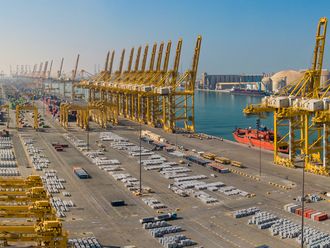Dubai: Equities may see a short-term hiccup due to the US government shutdown, but analysts are not worried about the medium to long-term prospects in the world’s biggest market due to a strong economic backdrop.
According to reports, funding for federal agencies ran out at midnight on Friday in Washington after lawmakers failed to agree on a stopgap funding bill, with Congress having an extra session on Sunday to end the impasse.
“The markets took a wobble and then recovered later the last time when we saw a governmnet shutdown during the Obama administration. It is possible, there might a short-term volatility, but I don’t think there will be a medium to long term impact on the markets,” said Saleem Khokhar, head of equities — investment management, First Abu Dhabi Bank.
On Friday, despite fears of a shutdown, the Dow Jones Industrial Average breached the keenly-watched 26,000 mark, after gaining 1.04 per cent in the week.
The S&P 500 index closed 0.44 per cent higher to 2,810.3 after gaining 0.86 per cent last week. The MSCI emerging market index closed 0.41 per cent higher to 1,232.60.
The dollar, which hit its lowest level in three years, was worst hit on Friday.
“We are constructive on the dollar. We saw weakness in 2017, but rising interest rates as well as strong growth environment should support [the US currency],” Khokhar said.
Positive trend
Analysts say the medium to long-term trend is still positive.
“I do think the trend is positive at the moment. There are many triggers in terms of earning provision, growth forecast not just in the US, but also in emerging markets. We have a seen a strong start, and I see that continuing,” Khokhar said.
Amid a positive backdrop in global equities in terms of strong corporate earnings and accelerating global growth and diminishing tail risks, UBS, which manages more than trillion dollars in assets, has modestly increased its overweight position in global equities.
“Although, after a strong run, many investors may not need to actively buy stocks. Investors that participated in the recent rally may have automatically increased the size of their overweight position in equities,” Mark Haefele, Global Chief Investment Officer — Wealth Management at UBS, said.
“We also add an overweight position in emerging market equities, relative to Australian equities. Emerging market stocks are relative value plays, and should provide investors with exposure to a strong global economy,” Haefele added.
The MSCI emerging market index gave 41 per cent returns last year compared to 31.49 per cent gains in the DJIA.
Haefele feels that investors can afford to engage in more active intra-market trades, and the UBS has doubled the size of its existing currency positions.
Oil prices
Analysts are questioning if oil prices near the $70 area are sustainable in the medium term due to recovering shale output.
Brent crude hit a high of $70.37, the highest level since 2015, after gaining 40 per cent in 2017 on the back of an agreement to cut oil output, which is expected to cut the surplus in the market.
Higher oil prices will likely drive an acceleration of production growth, particularly from US shale, and this will likely lead to a more balanced market in 2019/20, Morgan Stanley said in an emailed note.
Morgan Stanley expects oil prices to be at $65 per barrel in 2019.












